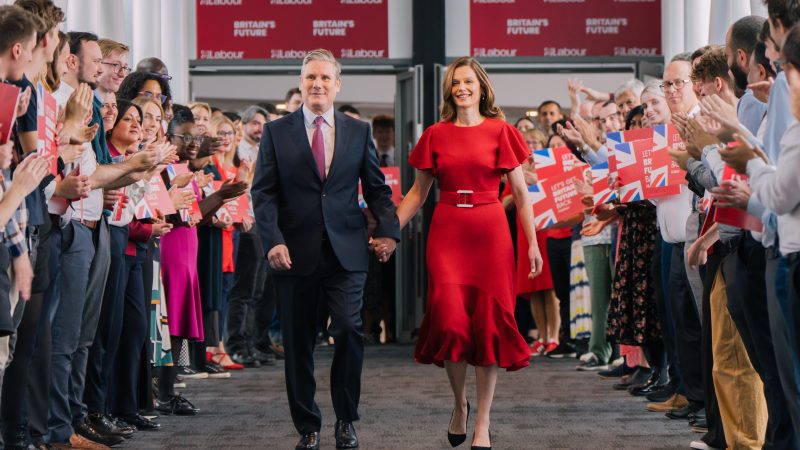
2023 has been a big year for Labour Party news (when is it not, if we’re honest) – and LabourList has been there through it all.
Here’s our rundown of the biggest moments of the past 12 months, plus a few extras here and there. Think we’ve missed something? Get in touch via [email protected] and tell us what your biggest moment of the year was!
January
Starmer’s New Year speech
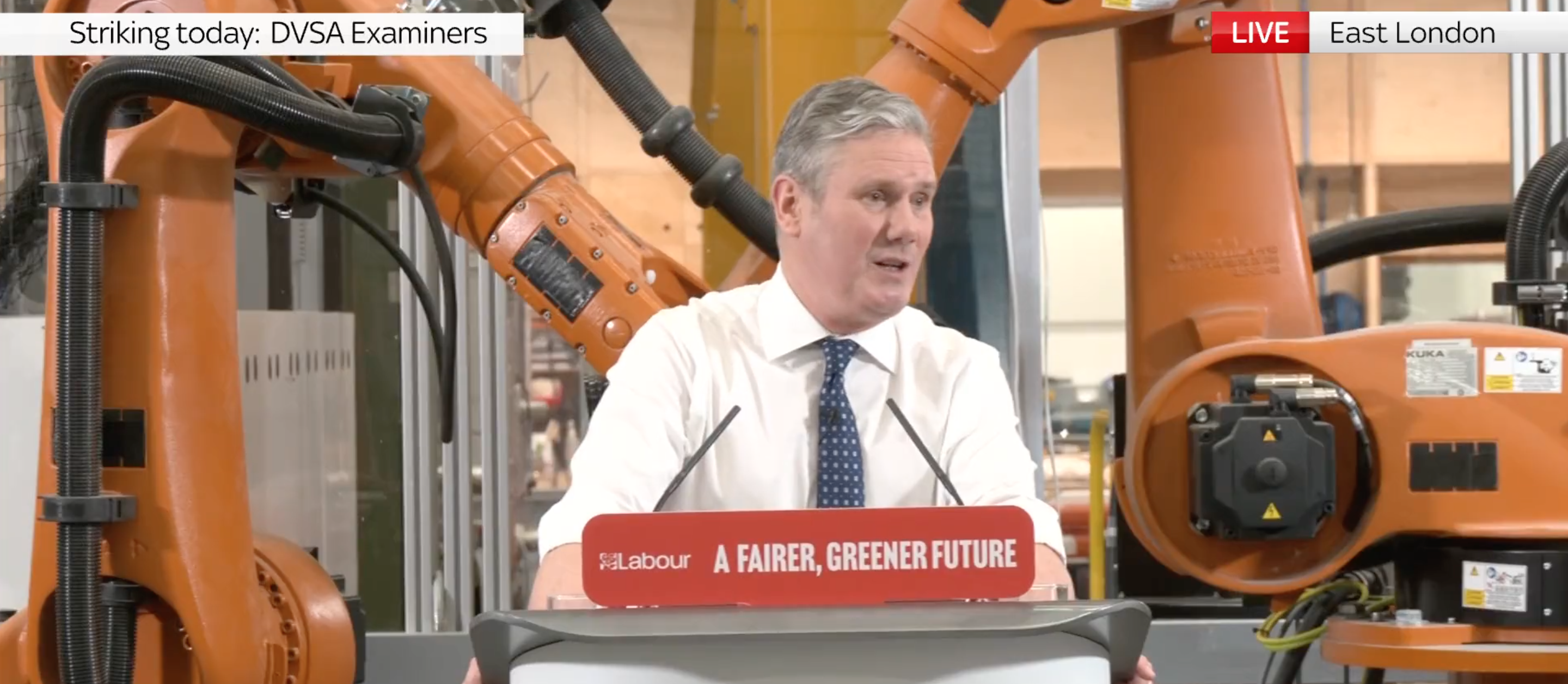
Keir Starmer delivered the first of many speeches this year at the beginning of January, which included announcing Labour’s plans to “spread control out of Westminster” through a ‘take back control’ bill.
In the speech in east London, the Labour leader also introduced the overarching theme of many of the speeches that would follow later in the year: Labour’s “national missions” that he said the party’s next manifesto will be “built around”.
He told attendees: “This year, in place of sticking-plaster politics, we’ll set out the case for change. The case for a new Britain. The case for hope. That the country will get better. That politics can be a force for good. That Britain can be run in the interests of working people.”
February
EHRC announces an end to monitoring of Labour Party
The Equality and Human Rights Commission (EHRC) announced in February that it had concluded its monitoring of the Labour Party, which began following the equality regulator’s investigation into allegations of antisemitism within the party.
The EHRC report – published in 2020 – found that there were “unlawful acts of harassment and discrimination for which the Labour Party is responsible”, “serious failings in leadership and an inadequate process for handling antisemitism complaints”.
EHRC chief executive Marcial Boo said the regulator had concluded its monitoring of the party on January 31st 2023 as it was “satisfied” that Labour had “implemented the necessary actions to improve its complaints, recruitment, training and other procedures to the legal standards required”.
Delivering a statement on the EHRC’s decision, Starmer said it was an “important moment in the history of the Labour Party”, though he cautioned that it was not a moment for celebration but a moment “for reflection”.
Other big February news
- Labour holds West Lancashire as Ashley Dalton secures majority of 8,326 (full story here)
- Starmer outlines the five “missions” that will be the “defining work” of his government (full story here)
- “Growth is the answer” – Starmer’s speech on Labour’s economic growth mission (full speech here)
March
Corbyn to be blocked as Labour candidate
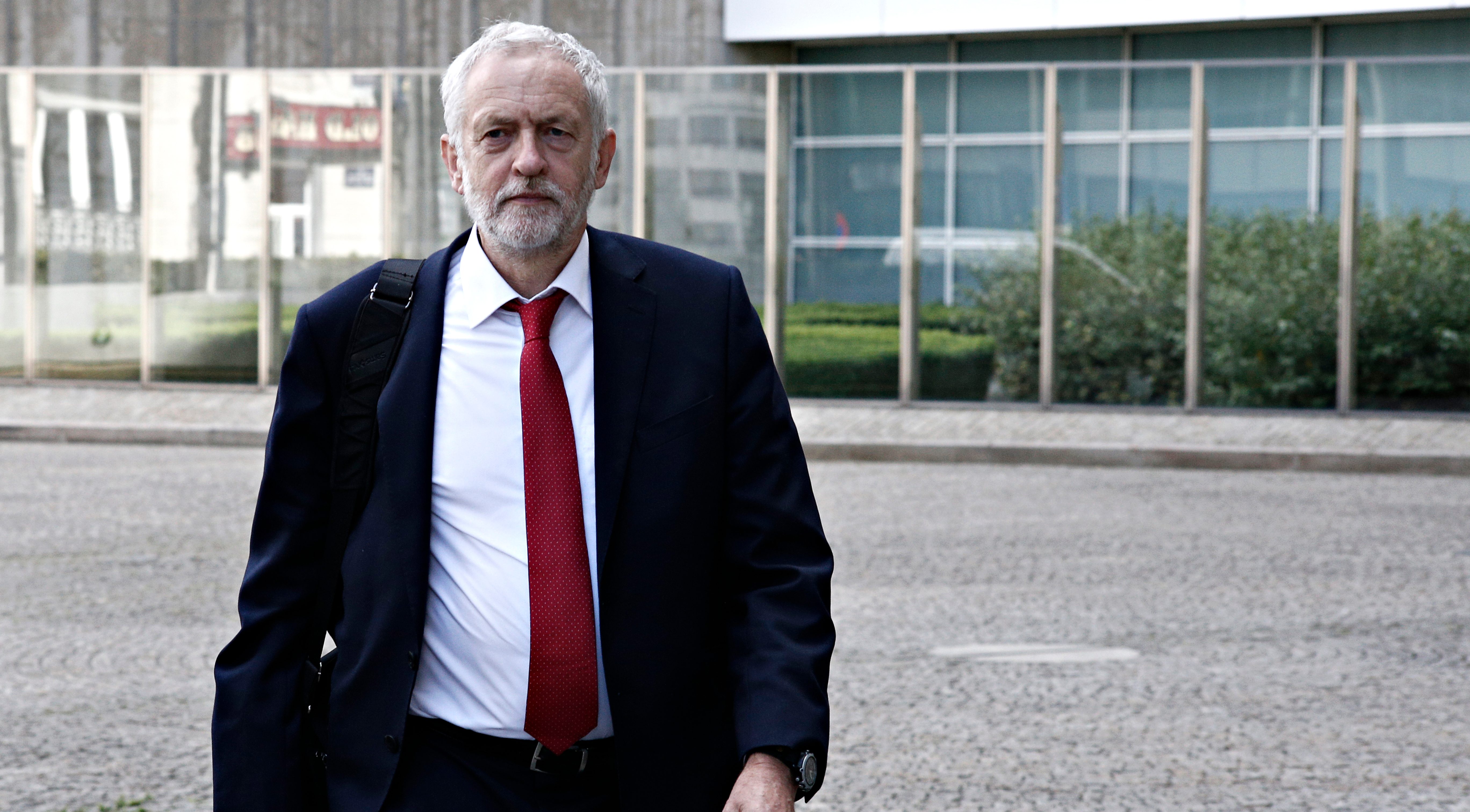
Starmer used a meeting of Labour’s ruling national executive committee (NEC) in March to confirm that Jeremy Corbyn will not stand as a Labour candidate at the next election.
The Labour leader proposed a motion at the meeting confirming that the NEC will not endorse his predecessor as a Labour candidate. The motion was passed by members by 22 votes to 12.
The motion stated that the party’s “standing with the electorate in the country, and its electoral prospects in seats it is required to win in order to secure a parliamentary majority and/or win the next general election, are both significantly diminished should Mr Corbyn be endorsed”.
Corbyn described the decision to block his candidacy as a “shameful attack on party democracy, party members and natural justice”. He added: “I will not be intimidated into silence. I have spent my life fighting for a fairer society on behalf of the people of Islington North, and I have no intention of stopping now.”
Other big March news
- Partygate investigator Sue Gray picked as Keir Starmer’s next chief of staff (full story here)
- Starmer says “fighting crime is a Labour cause” as he sets out second ‘mission’ (full story here and speech here)
April
Labour launches controversial attack ads
The first in a series of controversial Labour attack ads on Rishi Sunak over the Conservatives’ record on crime had been seen more than 21 million times when we published our piece on it. It is now up to 22.4 million.
The advert, which alleges the Prime Minister “doesn’t believe” adults convicted of sexually assaulting children should go to prison, generated days of headlines after it was first posted on the site then known as Twitter.
The claim was linked to Labour research suggesting 4,500 individuals with such convictions have not served prison time under the Conservatives since 2010.
It sparked significant criticism across the political spectrum, with some Labour figures joining voices from other parties in condemning it.
Former Home Secretary David Blunkett and former Shadow Chancellor John McDonnell both said the Labour Party was “better than this”.
Diane Abbott has party whip suspended
Veteran Labour left-winger Diane Abbott had the Labour whip suspended and apologised after suggesting Irish people, Jewish people and Travellers do not experience racism.
The party moved quickly to confirm Abbott’s suspension, which has left her sitting as an independent MP for Hackney North, after the comments, which appeared in a letter to the Observer in late April.
A party spokesperson said: “The Labour Party completely condemns these comments which are deeply offensive and wrong. The chief whip has suspended the Labour whip from Diane Abbott pending an investigation.”
Abbott released a statement apologising and saying that she wished to “wholly and unreservedly withdraw” her remarks and “disassociate” herself from them.
She later accused Labour of undertaking a “fraudulent” investigation into the comments, claiming that there was “no investigation”, Starmer’s swift public pronouncement of her “guilt” undermined it and that her local party had seen its elected leadership “decapitated” in a bid to replace her at the next election.
A party spokesperson said at the time the party expects “the highest standards of behaviour from its elected representatives, and has introduced an independent complaints process to investigate cases”, adding: “We do not give a running commentary on ongoing investigations.”
Other big April news
- Unions split as RCN rejects NHS pay deal but UNISON backs offer (full story here)
May
Labour says local elections show party is on way to Downing Street
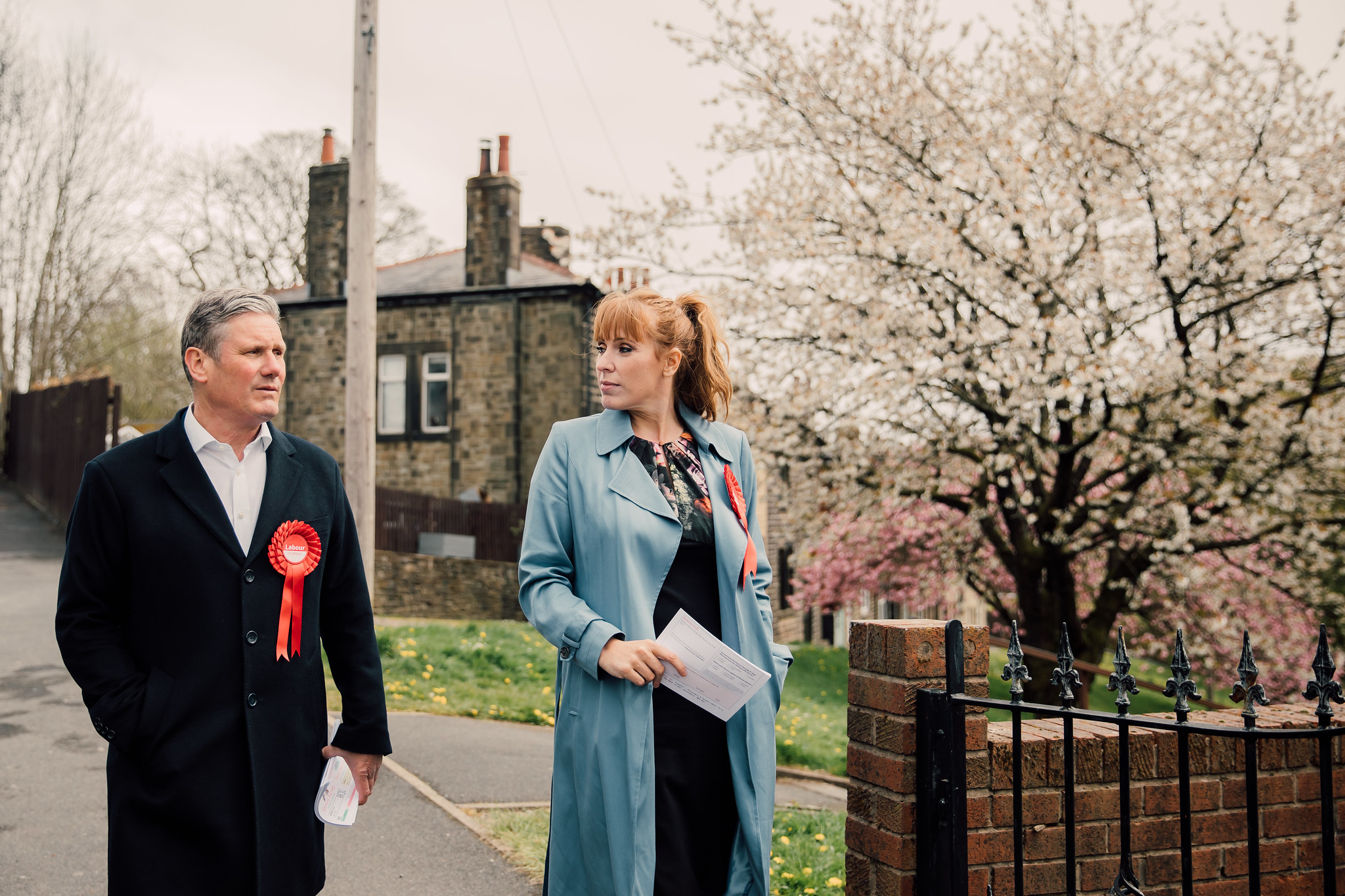
Labour gained more than 500 councillors and took control of 22 councils in this year’s local elections, with the party saying the results show it is on the path to Downing Street. The Conservatives lost more than 1,000 seats, worse than they had briefed ahead of the polls.
Starmer said of the results: “Across England, from Medway to Plymouth, Middlesbrough to Stoke, voters are backing Labour’s plan to cut the cost of living, cut waiting times and cut crime. The results are clear: a better Britain with Labour is possible.”
Key results from the night included Labour taking majority control of Medway council for the first time, winning overall control of Stoke-on-Trent City Council and gaining overall control of Plymouth council.
Other big May news
- Bermondsey Labour MP Neil Coyle has whip restored following suspension (full story here)
- Starmer’s full health mission speech: An NHS fit for the future (full story here and speech here)
June
Jamie Driscoll blocked from standing for North East mayor
The Labour mayor for the North of Tyne region Jamie Driscoll was in June blocked by the party from standing for a new mayoral role covering the north-east of England – prompting criticism from fellow metro mayors and union leaders.
LabourList saw a letter at the time that appeared to be from a party official to Driscoll, suggesting the selection panel’s decision was based on the need to “win elections”.
Driscoll, first elected in 2019, said on Twitter that he had been “barred” from running with “no explanation” given. “I’m proud to have created thousands of jobs, fought child poverty, built affordable homes and delivered our Green New Deal. I believe in democracy,” he wrote, urging others to “share if you do too”.
Ex-Shadow Chancellor John McDonnell called it “staggering news”, adding: “To refuse to allow a serving mayor onto even a selection longlist demonstrates that factionalism in the party is completely out of control.”
One source on the pro-leadership wing of the Labour Party said it was “astonishing” Driscoll had believed he might progress after his recent “provocative” decision to share a platform with filmmaker Ken Loach.
A Labour Party spokesperson said: “The Labour Party holds its candidates to a very high standard. During this process, some applicants did not meet the threshold required to proceed to the longlist stage. We do not comment on individual applications.”
Driscoll subsequently announced that he was quitting the Labour Party and will stand as an independent candidate in the North East mayoral election next year.
Other big June news
- Labour suspends Geraint Davies over alleged inappropriate sexual behaviour (full story here)
- Frontbencher Gerald Jones wins selection contest over left-wing MP Beth Winter (full story here)
- Frontbencher McGovern beats left-winger Whitley in Birkenhead selection (full story here)
- Starmer’s full energy mission speech today: Clean power to build a new Britain (full story here and speech here)
July
By-election joy, by-election disappointment

Labour’s candidate Keir Mather won a record victory over the Conservatives in the Selby and Ainsty by-election in July – in the highest majority the party has ever overturned in by-election history.
It marked the first time Labour has ever won the seat, with a majority of 4,161 on a 41.9% turnout. One party source said that if Labour won seats requiring a similar swing at a general election, it would win more seats than in 1997.
But, on the same day, Labour faced disappointment when its candidate Danny Beales narrowly finished second in the Uxbridge and South Ruislip by-election behind the Conservative candidate.
Labour had been widely expected to win the outer London seat from the Tories, with some experts saying it was vital to show the party is on course for power at a general election.
The expansion of the ultra-low emission zone (ULEZ) – proposed by mayor of London Sadiq Khan – was widely seen as a factor in the party’s loss in the seat. Starmer would later say Khan should “reflect” on the impact of extending the zone – which sees drivers of more polluting vehicles charged – into Uxbridge.
A third by-election in Somerton and Frome saw Lib Dem Sarah Dyke take the seat off the Tories – having overturned a similarly sizeable Tory majority to Mather – with Labour candidate Neil Guild in fifth.
Other big July news
- Starmer announces Labour would not reverse government’s two-child limit on benefits (full story here)
- Starmer’s opportunity mission speech: I will shatter the “class ceiling” (full story here and speech here)
- The key issues dividing the party after the National Policy Forum’s long weekend meeting (full story here)
- Unite votes to stay affiliated to Labour but warns ‘no blank cheques’ (full story here)
August
Rayner denies workers’ rights plans have been ‘watered down’
Angela Rayner pushed back following reports in August that Labour had “watered down” plans to strengthen workers’ rights, arguing that the party’s proposals represent the “biggest levelling up of workers’ rights in decades”.
The Financial Times reported that Labour’s pledge to create a single status of worker for all but the genuinely self-employed was “diluted” during the National Policy Forum (NPF) meeting the previous month, with the party now planning to consult on the move in government rather than introducing it immediately.
According to the paper, Labour also clarified that its plans to introduce “basic individual rights from day one for all workers” will “not prevent… probationary periods with fair and transparent rules and processes”.
In a thread on X, formerly known as Twitter, the deputy Labour leader wrote: “Labour’s new deal for working people will be the biggest levelling up of workers’ rights in decades – providing security, treating workers fairly and paying a decent wage.”
The Labour frontbencher continued: “I’m proud that we developed our comprehensive new deal together with Labour’s affiliated unions. Far from watering it down, we will now set out in detail how we will implement it and tackle the Tories’ scaremongering.”
Other big August news
- Mark Drakeford says he will leave Welsh parliament at next election (full story here)
September
The long-awaited Labour reshuffle
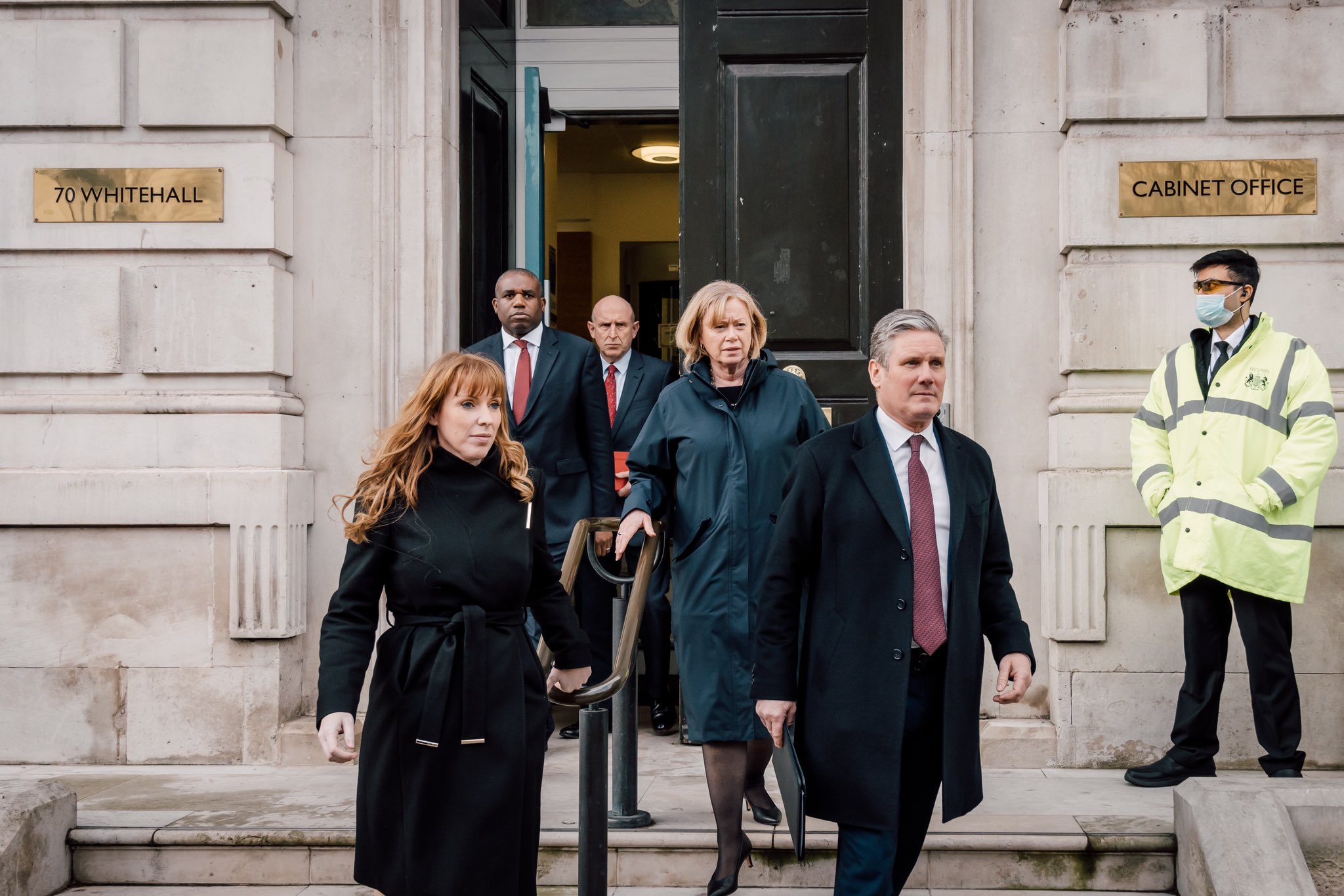
Labour unveiled a raft of changes to the shadow cabinet and frontbench in early September, including Angela Rayner replacing Lisa Nandy, Steve Reed replacing Jim McMahon and Liz Kendall replacing Jonathan Ashworth in a long-anticipated reshuffle.
Pat McFadden and Shabana Mahmood were among those to see promotions, while Lucy Powell (now Shadow Leader of the Commons) and Thangam Debbonaire (now Shadow Secretary for Media, Culture and Sport) partially swapped jobs, minus Powell’s digital brief.
Peter Kyle became the newly-created Shadow Secretary of State for Science, Innovation and Technology, with Hilary Benn returning to the frontbench as Shadow Northern Ireland Secretary.
Jonathan Reynolds added international trade to his business brief, while Nick Thomas-Symonds became shadow minister without portfolio. LabourList’s full round-up of the changes can be found here.
Other big September news
- Controversial party rule changes to expel Corbyn backers, demote equality posts and curb conference debate (full story here)
- ‘Serious, credible, fully funded’: Labour completes National Policy Forum programme (full story here)
October
A trio of by-election victories
Labour’s Michael Shanks was declared the winner of the Rutherglen and Hamilton West by-election in early October – becoming only Labour’s second current MP in Scotland.
Shanks, a local teacher and charity worker, won the by-election with 58.6% of the vote and a majority of 9,446 ahead of the Scottish National Party’s Katy Loudon in second place and the Tory candidate Thomas Kerr in third. According to BBC News, the by-election saw a swing from the SNP to Labour of 20.4%.
Starmer described the result as “seismic”, adding: “People in Rutherglen and Hamilton West have sent a clear message – it is time for change. And it is clear they believe that this changed Labour Party can deliver it.”
The vote was seen as a key test of Anas Sarwar’s Scottish Labour Party’s progress, who will look to make significant gains from the SNP at the next general election. Speaking ahead of the result, Sarwar said he hoped the result would be a good “springboard” into the next election.
Just two weeks later, Labour was celebrating two more by-election victories. Sarah Edwards won in Tamworth, with the second highest ever Tory-to-Labour swing of 23.9%, while Alistair Strathern won a similarly historic victory in Mid Bedfordshire, which saw Labour take the seat for the first time since its creation.
Pollster Sir John Curtice said just before the results were declared that “substantial swings” to Labour in both Mid Beds and Tamworth, combined with Labour’s opinion poll lead, suggested it was “on course to win the next election”.
Labour turmoil over Starmer’s Israel-Gaza stance
Starmer’s comments on the conflict between Israel and Hamas during an interview with LBC in October drew strong criticism, including from the Labour Muslim Network who accused the Labour leader of having “endorsed plans” for the collective punishment of people living in the Gaza Strip.
Starmer told LBC that Israel “does have that right to defend herself”. He was then asked whether cutting off power and water was “appropriate”, to which he replied: “I think that Israel does have that right. It is an ongoing situation.” He added: “Obviously, everything should be done within international law.”
A Labour spokesperson later denied that Starmer had said Israel ‘has the right’ to cut off power and water in Gaza, saying the Labour leader’s comment had been in response to a previous question on Israel’s right to defend itself.
Starmer then sought to further clarify his position, saying: “I know that LBC clip has been widely shared and caused real concern and distress in some Muslim communities so let me be clear… I was saying that Israel has the right to self-defence… I was not saying that Israel had the right to cut off water, food, fuel or medicines.”
But the comments prompted the resignations of a number of Labour elected representatives. A group of those who resigned wrote to Starmer later in October, accusing him of “doubl[ing] down and gaslight[ing] us and all those who heard you say what you now deny about collective punishment in Gaza”.
Other big October news
- Full final policy platform set to shape next Labour manifesto (full story here)
- Starmer’s full 2023 conference speech: “Britain will get its future back” (full speech here)
- Pro-Starmer candidates resoundingly beat left-wing slates in internal elections (full story here)
November
Starmer faces parliamentary rebellion over stance on Gaza ceasefire
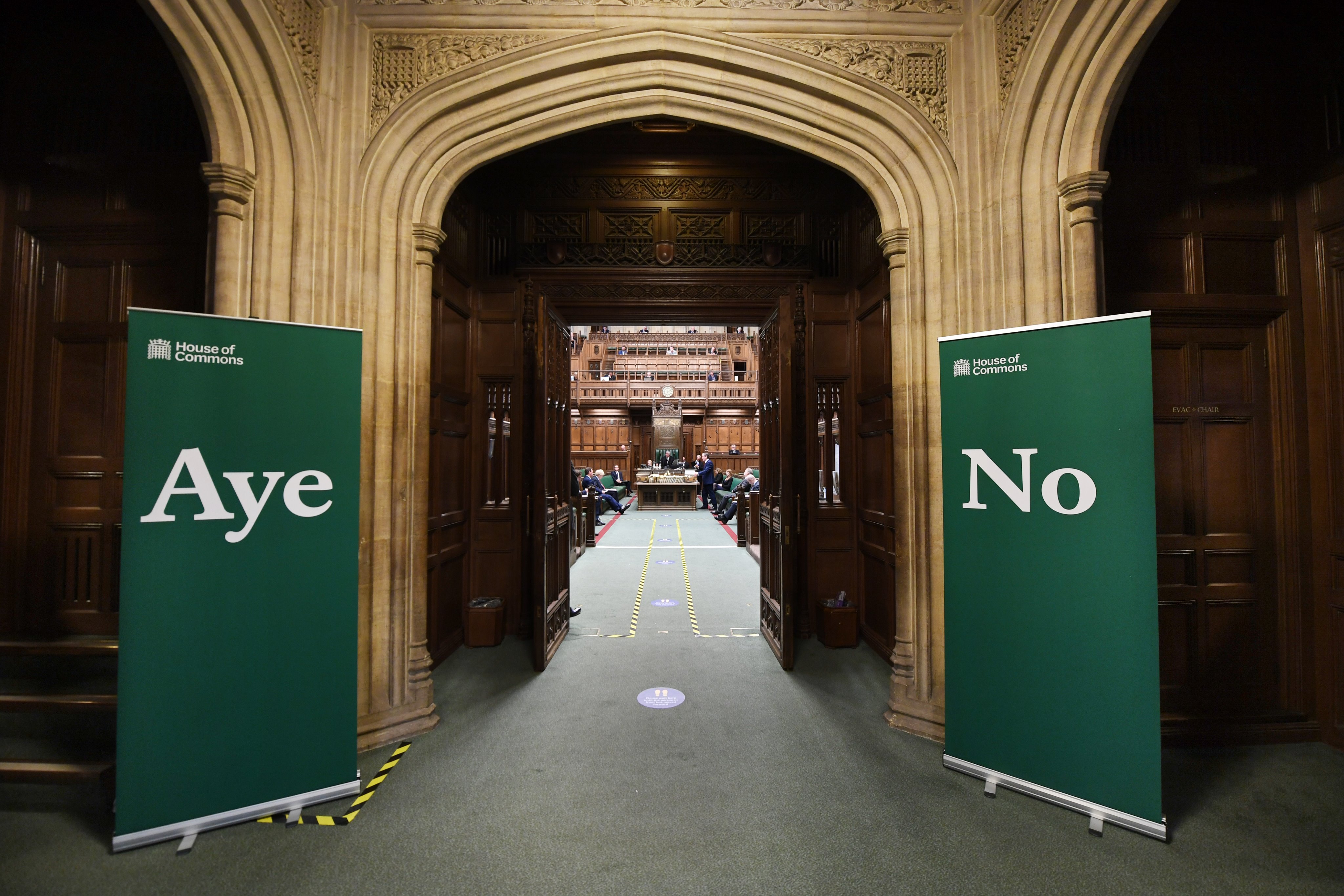
Ten Labour MPs left their posts on the shadow frontbench after breaking the party line by voting for a ceasefire in Israel and Palestine, with a total of 56 Labour MPs backing an SNP amendment in a significant rebellion.
Labour shadow ministers Paula Barker, Rachel Hopkins, Afzal Khan, Sarah Owen, Jess Phillips, Yasmin Qureshi, Naz Shah and Andy Slaughter left their roles, while parliamentary private secretaries Dan Carden and Mary Foy also departed.
Starmer said: “I regret that some colleagues felt unable to support the position tonight. But I wanted to be clear about where I stood, and where I will stand. Leadership is about doing the right thing. That is the least the public deserves.”
Ahead of the vote, Starmer had been under considerable pressure from within his party to call for a ceasefire in the conflict, including from members of his frontbench, Labour metro mayors and the Scottish Labour leader Anas Sarwar.
Bradford East MP Imran Hussain quit as shadow minister for the New Deal for Working People the week before, saying he wanted to be “able to strongly advocate for a ceasefire”. He declared that his position on the “ongoing humanitarian catastrophe in Gaza differs substantially” from Starmer’s position.
Other big November news
- Autumn statement 2023: Rachel Reeves’ full speech in response (full speech here)
- ‘Decency, wisdom and wry humour’: Tributes paid to Alistair Darling (full story here)
- Labour wins Hackney mayor by-election but sheds 17,500 votes after scandal (full story here)
- Preston mosques tell Labour councillors to demand Starmer quit in ceasefire row (full story here)
December
Drakeford to step down as Welsh Labour leader, triggering leadership election
Mark Drakeford announced in December that he is stepping down as Welsh First Minister, saying in a statement that nominations for his successor as Welsh Labour leader would be opening “shortly” and that he is “confident” the process can be concluded by the “end of the spring term”.
First to throw his hat into the ring to succeed Drakeford was economy minister and runner-up in the 2018 leadership contest Vaughan Gething, issuing a statement in which he pledged to set out an “energetic agenda for our country’s future”.
Welsh education minister Jeremy Miles subsequently confirmed that he would also be entering the race, saying in a statement that he plans to set out “a bold, ambitious and exciting vision for Wales’ future”.
It has now been confirmed that just Gething and Miles have made it onto the ballot, following nominations by their fellow Labour Members of the Senedd. Nominations by Constituency Labour Parties, trade unions and affiliates are ongoing and will close on January 29th.




More from LabourList
‘Mor-gone but not forgotten’
Downing Street director of communications Tim Allan resigns
‘Treasury ‘Green Book’ reform is a game-changer for left-behind coastal towns’